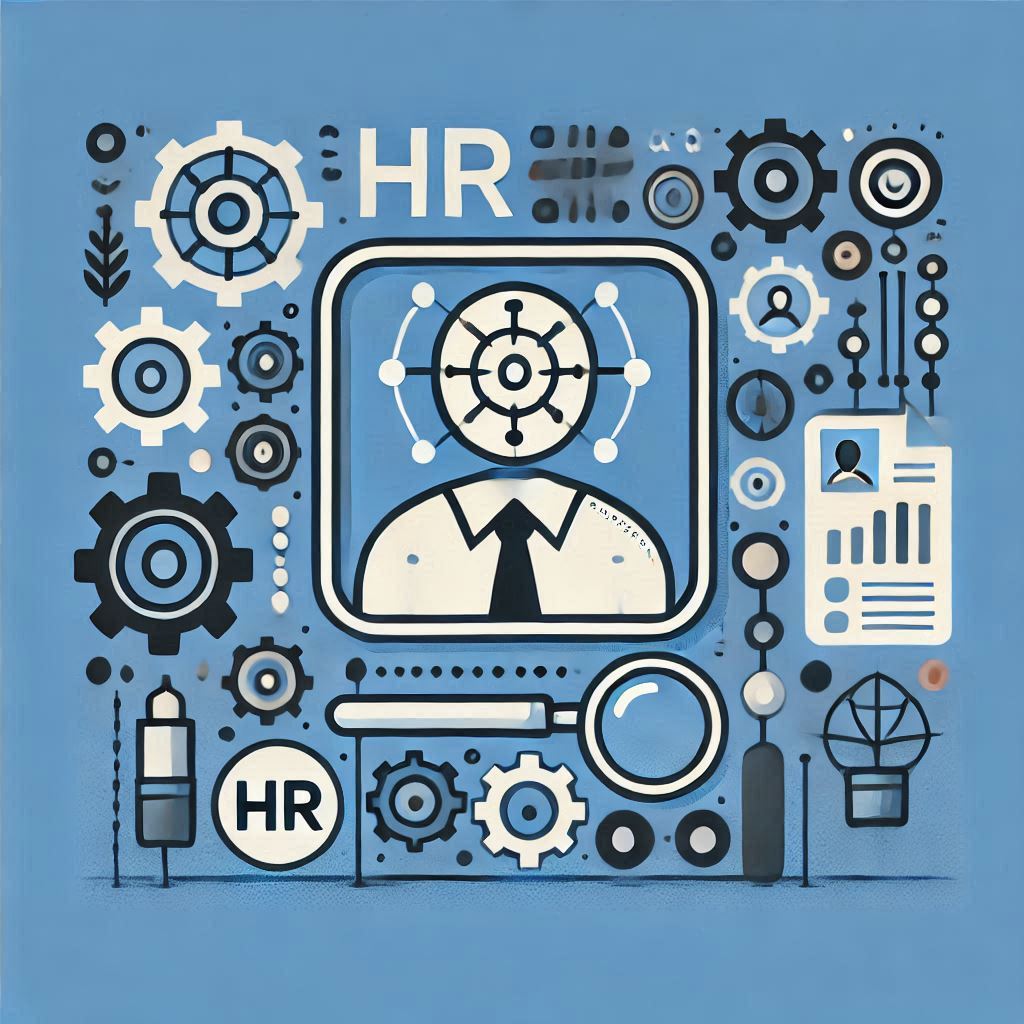
Preparing HR for 2025: The Impact of GPT and Generative AI
by Etienne Pretorius
© Etienne Pretorius 2025
As artificial intelligence evolves, we must remember that its power lies not in replacing human intelligence, but in augmenting it. The true potential of AI lies in its ability to amplify human creativity and ingenuity.
Ginni Rometty, Executive Chairman at IBM
As we step into 2025, the human resources (HR) landscape is evolving at an unprecedented pace, and generative AI is at the forefront of this transformation. Tools like GPT are revolutionizing how HR functions are managed, making processes faster, smarter, and more efficient. Here’s a closer look at how AI is shaping the future of HR through the lens of key HR functions:
Strategic HR Management
Generative AI is helping HR leaders take a more strategic approach by automating routine tasks and providing actionable insights. With AI tools, HR professionals can:
- Analyse workforce needs and forecast future staffing: AI can analyze historical data and predict future trends, allowing businesses to anticipate their staffing needs.
- Develop strategies for talent acquisition, retention, and succession: AI-powered tools streamline the hiring process, helping HR identify top talent, plan for succession, and build strategies to retain key employees.
- Design job descriptions, manage postings, and conduct interviews: GPT can draft job descriptions tailored to specific roles, automate job postings across platforms, and even assist in creating interview questions that align with job requirements.
- Implement rigorous candidate assessment: AI can help design assessments that evaluate both technical skills and cultural fit, ensuring a more comprehensive evaluation process.
Policy Development
Keeping up with regulatory changes and aligning company policies with business goals can be challenging. Generative AI simplifies policy management by:
- Designing and drafting policies: AI can draft policy documents quickly, ensuring clarity and compliance.
- Ensuring compliance with South African labour laws: AI tools can stay updated with labour law changes, ensuring policies remain current and compliant.
HR Metrics and Analytics
Data-driven decision-making is becoming a cornerstone of HR success, and AI plays a crucial role in:
- Measuring and communicating essential HR trends: AI can analyze data to identify trends in retention and engagement, providing valuable insights.
- Guiding decisions with data: Predictive analytics powered by AI can highlight areas for improvement and measure the impact of HR initiatives.
Employee Engagement and Relations
Generative AI enhances employee experience by personalizing engagement strategies:
- Rewards and Recognition: AI can design incentive programs tailored to individual and team performance, promoting a culture of recognition.
- Industrial Relations: AI-driven tools can help mediate disputes, facilitate negotiations, and ensure grievance handling is fair and efficient.
- Employee Participation and Communication: Chatbots powered by GPT can streamline communication between employees and management, offering instant answers and facilitating engagement initiatives.
Performance and Development
Generative AI makes performance management and learning more effective:
- Performance Management: AI can automate goal tracking, appraisals, and feedback processes, enabling real-time performance monitoring.
- Learning and Development: AI can identify skill gaps and recommend targeted training programs, ensuring employees stay ahead in their careers.
- Career Planning: GPT can offer personalized career advice, aligning employee aspirations with organizational goals.
Organisational Development
AI assists in navigating organizational changes and fostering inclusivity:
- Change Management: AI can model scenarios to predict the impact of changes, helping businesses manage transitions effectively.
- Diversity, Equity, and Inclusion (DEI): AI tools can analyze data to identify gaps in diversity and recommend strategies to create a more inclusive workplace.
Administrative Responsibilities
Generative AI reduces administrative burden, enabling HR professionals to focus on strategic tasks:
- HR Operations and Systems: AI-powered HRIS solutions streamline processes like onboarding, record-keeping, and compliance management.
- Health, Safety, and Wellbeing: AI can monitor compliance with safety regulations, automate risk assessments, and support employee wellness programs.
Embracing the Future of HR with Generative AI
By incorporating generative AI into HR functions, businesses can save time, reduce costs, and improve decision-making. As 2025 unfolds, the HR professionals who embrace these technologies will be better positioned to adapt to changing workforce dynamics and drive organizational success.
With its ability to simplify complex processes and deliver actionable insights, generative AI is not just a tool for HR – it’s a partner in building a more efficient, inclusive, and engaging workplace.
